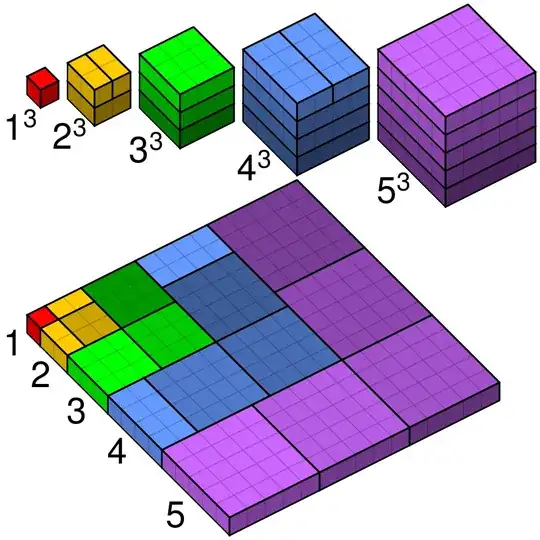I have a question that I don't know how to solve.
For which $n \in \mathbb{N}$ do we have $$\sum\limits^n_{k=0} k^3 = (\sum\limits^n_{k=0} k)^2\quad ?$$.
Here's what I've tried:
\begin{align*}\sum\limits^n_{k=0} k^3 = (\sum\limits^n_{k=0} k)^2 & \Leftrightarrow 1+8+27+\cdots+n^3 = (1+2+3+\cdots+n)^2\\ & \Leftrightarrow \sqrt{1+8+27+\cdots+n^3} = 1+2+3+\cdots+n \end{align*}
